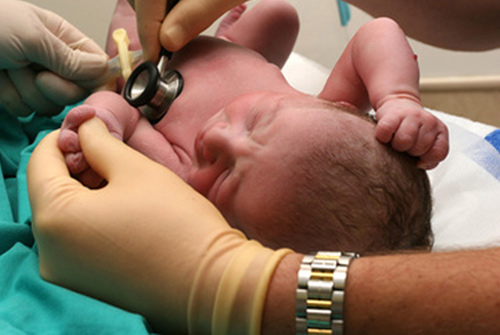
Illumina said it has agreed with Children’s Hospital of Fudan University in Shanghai to conduct rapid whole genome sequencing (rWGS) in the hospital’s neonatal intensive care unit, with the goal of assessing how feasibly the technology can be applied in the NICU toward diagnosis of critically ill infants.
The project is the first to introduce the concept of rWGS in China for indiscriminate detection in the NICU, according to Illumina. Until now, commonly used gene detection tools in clinical practice have included chromosome microarray analysis, focus panel sequencing, and whole exome sequencing.
According to Illumina, the information these tools provide is not comprehensive, leaving room for improvements in both diagnosis rate and time.
“With the application of rWGS, faster and more accurate information including point mutations, copy number and various structures can be detected,” Illumina said in a statement.
Approximately 6% of births in China result in birth defects, according to China Birth Defect Prevention Report (2012). Genetic disease is a leading cause of death among children under age 5, with hereditary birth defects accounting for approximately one-third (30%) of total birth defects.
The partners plan to enroll 200 patients in their study, which will investigate the diagnosis rate of rWGS compared with traditional detection methods—as well as diagnosis time, prognosis improvement and hospitalization turnaround time.
Illumina will provide the sequencing reagents, the company said, while the Children’s Hospital of Fudan University will oversee testing, data analysis, reporting and genetic consultations with patients’ families.
Founded in 1952, Children’s Hospital of Fudan University is a tertiary pediatric medical center affiliated with China’s Ministry of Health of China.
Children’s Hospital of Fudan University sponsors the Newborn Genome Project, launched in 2016 with the aim of detecting hereditary diseases before the affected newborns have developed symptoms. The Project initially planned to carry out genetic testing on 100,000 newborn babies over five years, the state-run Xinhua news agency reported at the time.
The Newborn Genome Project aims to develop a genetic disease detection method suitable for newborns, establish genetic testing standards for neonatal genetic diseases, and promote neonatal inheritance. The Project maintains a genome database for newborns in China.
“Greater China”—which includes Hong Kong and Taiwan—accounted for $365 million or about 11% of Illumina’s $3.333 billion in total revenue in 2018—up 25% from $292 million in 2017, when Greater China generated 10.6% of total revenue.
The partnership also reflects Illumina’s ongoing focus on advancing clinical applications of high-throughput sequencing in genetic disease. The sequencing giant is set to release first quarter 2019 results tomorrow.











